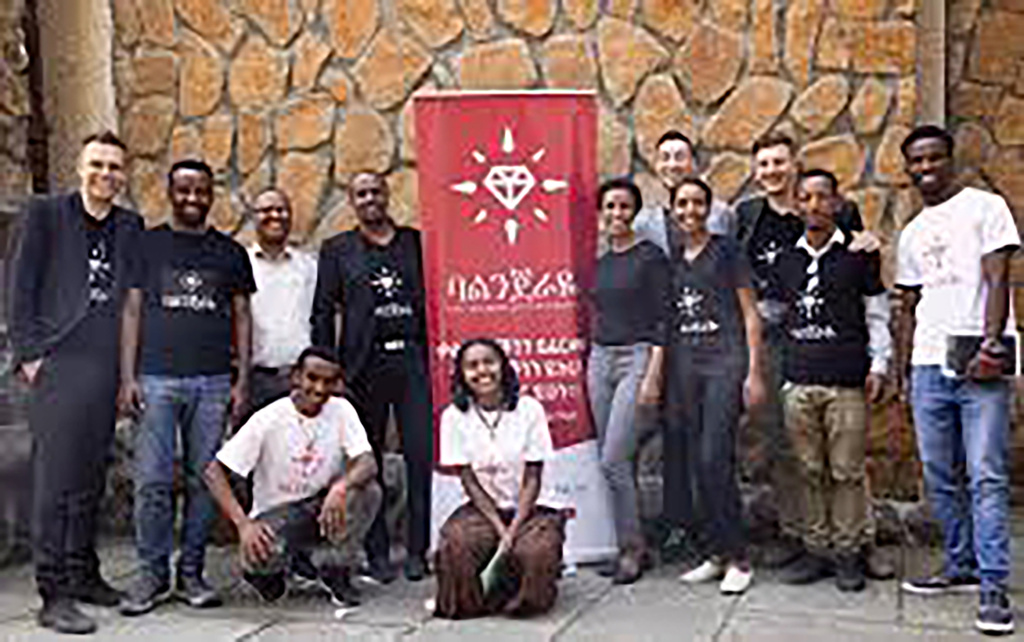Many people today assume that unity and diversity are enemies. For example, we often hear in politics and religion about the “pro-unity camp” and the “pro-diversity camp.” This binary metaphor pictures unity and diversity as armies on a battlefield struggling for domination.
But unity requires diversity. Without diversity, unity becomes sameness and destroys itself, because there is nothing to unite in sameness. Only a monolithic mass remains. Diversity is the secret, sustaining ingredient of unity.
Likewise, diversity requires unity. Without unity, diversity becomes alienation and destroys itself, because everything is separate in alienation. Only splintered fragments remain. Unity is the secret, sustaining ingredient of diversity.
Against popular assumption, then, unity and diversity are not opposite but integral. They needn’t compete but instead can complement one another. In fact, I would go further: they require one another. There is no unity without diversity and no diversity without unity.
The implication is profound and practical: We cannot be for one (“us”) without being for the other (“them”). If we want real unity, we must also want robust diversity. If we want real diversity, we must also want robust unity. As Dr. Martin Luther King Jr. understood, “Life at its best is a creative synthesis of opposites in fruitful harmony.”
The fact that some of us reject this truth and see unity and diversity as warring camps reveals something equally profound and dangerous. When we say we want “unity,” we really want sameness: we want the others to go away by being absorbed into us. Or when we say we want “diversity,” we really want separation: we want the others to go away by being alienated from us.
But as you can see, the core of sameness (fake unity) and separation (fake diversity) is actually identical: we want others to go away. The method is different: absorption or exile, domination or divorce. But the core is the same: “We alone must exist; otherness must be eliminated.” Emmanuel Levinas, the brilliant Holocaust survivor and philosopher, called this the logic of war.
From this perspective, we discover that the question of neighbor-love is at the heart of public discourse about “unity” and “diversity”: Are we equally precious neighbors who belong to one another, or are we enemies who must destroy one another? Are we created for relationship, community, and a common good—or sameness, alienation, and war?
The claim of Balinjeraye: The Neighbor-Love Movement, which I co-lead with Dr. Tekalign Nega, is that we are neighbors instead of enemies. We were created for life with one another and a common good—unity in diversity, diversity in unity—not domination or divorce.
This is why we have a diamond in our logo. People are diamonds. They’re not less or unrelated to us, as forces of othering would have us believe. People are our precious neighbors—deeply related and fully equal with ourselves. Inspiring young people to see others this way is our single mission.
And this is why we have a compass around the diamond in our logo. When we see people as diamonds, we have the direction we need to live. We know where to go and what to do. We have our map and mission for life.
But the challenge is that the alternatives to neighbor-love are less demanding. Fake-unity is simpler and easier: make everyone (not) like us (go away). Likewise, fake-diversity is simpler and easier: make everyone not like us go away.
Neighbor-love is complex and challenging because it requires moral transformation in our basic values, practices, and institutions. This transformation is marked by diverse but united commitments like empathy (caring about others), dialogue (talking with others), trust (believing in others), cooperation (working with others), accountability (questioning one another), and innovation (finding new solutions to old problems).
These qualities are the integrated outcomes of neighbor-love, which isn’t just fuzzy feelings and happy thoughts. Neighbor-love is passionate will and practical work for others’ wellbeing. For example, the Times of London has shown that neighbor-love added £3 billion to the UK’s economy in 2014. Research indicates that neighbor-love contributed $8.8 billion to the American economy in 2018.
Balinjeraye: The Neighbor-Love Movement exists to cultivate this transformative unity and diversity rooted in neighbor-love among Ethiopian young people. Our creative media content and dialogue events are designed to inspire young people to become Neighbor-Love Ambassadors who practice love and justice for human flourishing across boundaries.
Today, whoever you are, wherever you live, we warmly invite you to sign our Covenant, embody our Practices, and become Ambassadors of Neighbor-Love. Join our movement and combine your passion with ours for an Ethiopia and a world of love, justice, and flourishing for all neighbors.
Excerpts from https://www.ethiopia-insight.com/2020/04/26/balinjeraye-unity-and-diversity-are-neighbors-and-so-are-we/
For more information on this Neighbour-Love Movement and how to join: https://balinjeraye.org/



